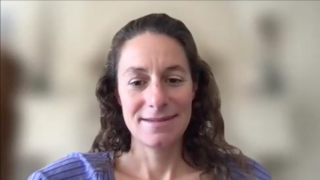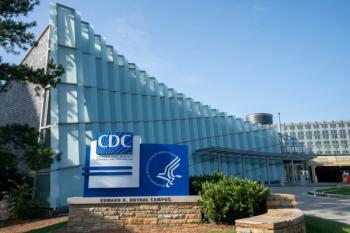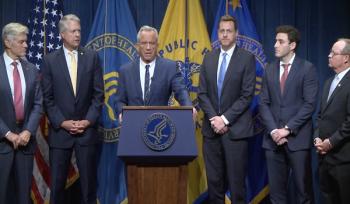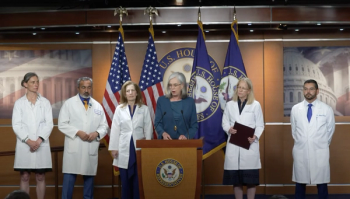
Policy
Latest News

Latest Videos

Podcasts
CME Content
More News

In a webinar, panelists discuss Trump's 2025 drug pricing policies, focusing on the Most Favored Nation order, pharmacy benefit manager reform, and implications for manufacturers and patients.

Explore how the Collaborative Care Model enhances mental health access in this episode featuring Anna Bobb, MPH, executive director of the Path Forward coalition.

Ted Okon, MBA, of the Community Oncology Alliance discusses how community oncology faces a revenue crisis due to the Inflation Reduction Act's impact on Medicare reimbursement, risking patient access to vital cancer treatments.

The decision by the Supreme Court has major implications on which preventive services are required to be covered by insurance companies under the Affordable Care Act.

As Obergefell v Hodges turns 10 years, LGBTQ+ rights face renewed threats amid political shifts, impacting health care equity and access.

South Carolina had previously barred abortion clinics, including Planned Parenthood, from participating in Medicaid, leaving many patients vulnerable to uncovered treatment.

Controversy surrounds the Advisory Committee on Immunization Practices’ (ACIP) first meeting under new leadership as vaccine skeptics join the panel.

Osteoarthritis leads the burden, projected to affect 50% of postmenopausal women by 2045.

The elimination of the program addressing LGBTQ+ individuals on the national suicide hotline makes reaching specialized help harder, says Hannah Wesolowski of the National Alliance on Mental Illness.

Up to 257 million Americans could benefit from these prior authorization reforms that could have cross-market implications on health care plans administered through commercial insurers, Medicare Advantage, and Medicaid.

Delays, denials, and endless paperwork—prior authorization isn’t just a headache for providers; it’s a barrier for patients who need timely care, explains Colin Banas, MD, MHA, chief medical officer with DrFirst.

Democratic leaders assert the Emergency Medical Treatment and Labor Act (EMTALA) remains vital for emergency care, countering confusion from recent policy changes affecting abortion rights and patient safety.


The country has seen historic reductions in uninsured rates and improvements in affordability since the implementation of the Affordable Care Act, the Commonwealth Fund scorecard shows.

The Choose Medicare Act would establish a Medicare Part E that would give employers and the general public the ability to opt into the program.

A quick roundup episode of major news and health policy developments from The American Journal of Managed Care.

New Jersey Attorney General Matthew Platkin said the question before the court is whether First Choice Women's Resource Centers can ignore a subpoena amid a state consumer fraud investigation.

A global surge in rheumatoid arthritis with local hotspots highlights the need for targeted public health interventions.

While the tax exclusion for employer-sponsored health care was not included in the House-passed reconciliation bill, it remains a revenue target for Congress, risking inclusion in the Senate's version.

As accountable care organizations’ (ACOs) maturity increased, hospitals participating in CMS ACOs were making progress toward enhanced performance but required more time to improve cost and quality outcomes.

The announcement of the new members of the CDC Advisory Committee on Immunization Practice comes days after the HHS secretary removed all previous members of the panel.

Supported value-based care improves prenatal care while reducing neonatal intensive care unit stays, preterm birth rates, low birth weight rates, and costs for mothers and infants.

Adolescents face significant barriers to obesity medication access, despite a surge in prescriptions. Discover the disparities and potential solutions in obesity care.

HHS Secretary Robert F. Kennedy Jr has disbanded the Advisory Committee on Immunization Practices, aiming to restore trust in vaccines amid concerns over politicization and integrity.

Trump's sweeping health care overhaul faces scrutiny, risking coverage for millions while igniting bipartisan tensions over fiscal and social impacts.



















